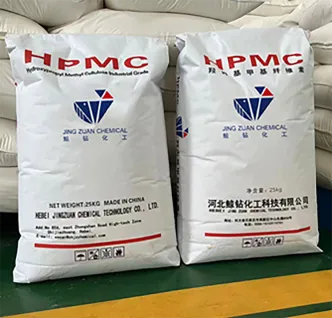
дек. . 25, 2024 16:50 Back to list
HPMC Supplier Solutions for High-Quality Hydroxypropyl Methylcellulose Products
The Role of HPMC Suppliers in the Pharmaceutical Industry
Hydroxypropyl methylcellulose (HPMC) has become a crucial component in various industries, particularly in pharmaceuticals. HPMC is a cellulose ether that possesses unique properties that make it an ideal excipient in drug formulation. Given its significance, HPMC suppliers play a vital role in ensuring the availability and quality of this essential material. In this article, we will explore the importance of HPMC suppliers, the applications of HPMC in the pharmaceutical sector, and the challenges they face.
Understanding HPMC
HPMC is a non-ionic, water-soluble polymer derived from cellulose, which is a natural polymer sourced from plant materials. It is known for its gelling, thickening, and film-forming properties. Its ability to form gels at certain concentrations makes it a popular choice for controlled-release formulations. This versatility extends to numerous applications including the formulation of tablets, capsules, and liquid dosages, making it invaluable to the pharmaceutical industry.
Importance of HPMC Suppliers
HPMC suppliers serve a fundamental role in the pharmaceutical supply chain. They are responsible for sourcing, manufacturing, and distributing HPMC with the necessary purity and consistency to meet strict regulatory standards. Reliable suppliers ensure that pharmaceutical companies receive high-quality HPMC, which is essential for maintaining the efficacy of drug formulations.
One of the main responsibilities of HPMC suppliers is to adhere to Good Manufacturing Practices (GMP). This regulatory framework ensures that products are consistently produced in a controlled environment to minimize risks. Suppliers must also provide detailed documentation, including Certificates of Analysis (CoA), to validate the specifications and purity of HPMC batches.
Applications in Pharmaceuticals
HPMC has several applications in the pharmaceutical industry. One of the most common uses is as a binder in tablet formulations. Binders help to hold the ingredients together, ensuring the integrity of the tablet during manufacturing and transportation. HPMC's excellent binding properties contribute to the durability of tablets while allowing for the controlled release of the active pharmaceutical ingredient (API).
hpmc supplier

Additionally, HPMC is used in the formulation of controlled-release capsules. The polymer can be engineered to dissolve at specific rates, allowing for the gradual release of medication into the bloodstream. This property is particularly beneficial for chronic conditions that require consistent dosing over an extended period.
Another important application of HPMC is as a thickening agent in liquid formulations. It helps to enhance the viscosity of the solution, providing stability and improving the mouthfeel of syrups and suspensions. Moreover, HPMC can serve as a film-forming agent, enabling the manufacture of coatings for tablets that improve shelf life and facilitate easier swallowing.
Challenges Faced by HPMC Suppliers
Despite the critical role they play, HPMC suppliers encounter several challenges. One of the main issues is the need to keep pace with evolving regulatory requirements. The pharmaceutical industry is subject to rigorous scrutiny, and suppliers must continually update their processes to comply with regulations from authorities like the FDA and EMA.
Another challenge is the need for innovation. As drug formulations become more sophisticated, the demand for specialized HPMC grades increases. Suppliers must invest in research and development to produce HPMC with tailor-made properties, which can be a time-consuming and costly endeavor.
Finally, the supply chain for raw materials used in HPMC production can be volatile. Fluctuations in the availability and cost of cellulose can impact production schedules and pricing, posing a challenge for suppliers to maintain a stable output.
Conclusion
HPMC suppliers play a pivotal role in the pharmaceutical industry by providing essential materials that contribute to the safety, efficacy, and quality of drug formulations. Their commitment to quality, innovation, and compliance with regulatory standards ensures that pharmaceutical companies have access to the necessary resources for developing effective medications. As the industry evolves, these suppliers will continue to adapt and address the challenges they face, ensuring that the benefits of HPMC remain integral to pharmaceutical advancements.
-
Versatile Hpmc Uses in Different Industries
NewsJun.19,2025
-
Redispersible Powder's Role in Enhancing Durability of Construction Products
NewsJun.19,2025
-
Hydroxyethyl Cellulose Applications Driving Green Industrial Processes
NewsJun.19,2025
-
Exploring Different Redispersible Polymer Powder
NewsJun.19,2025
-
Choosing the Right Mortar Bonding Agent
NewsJun.19,2025
-
Applications and Significance of China Hpmc in Modern Industries
NewsJun.19,2025







